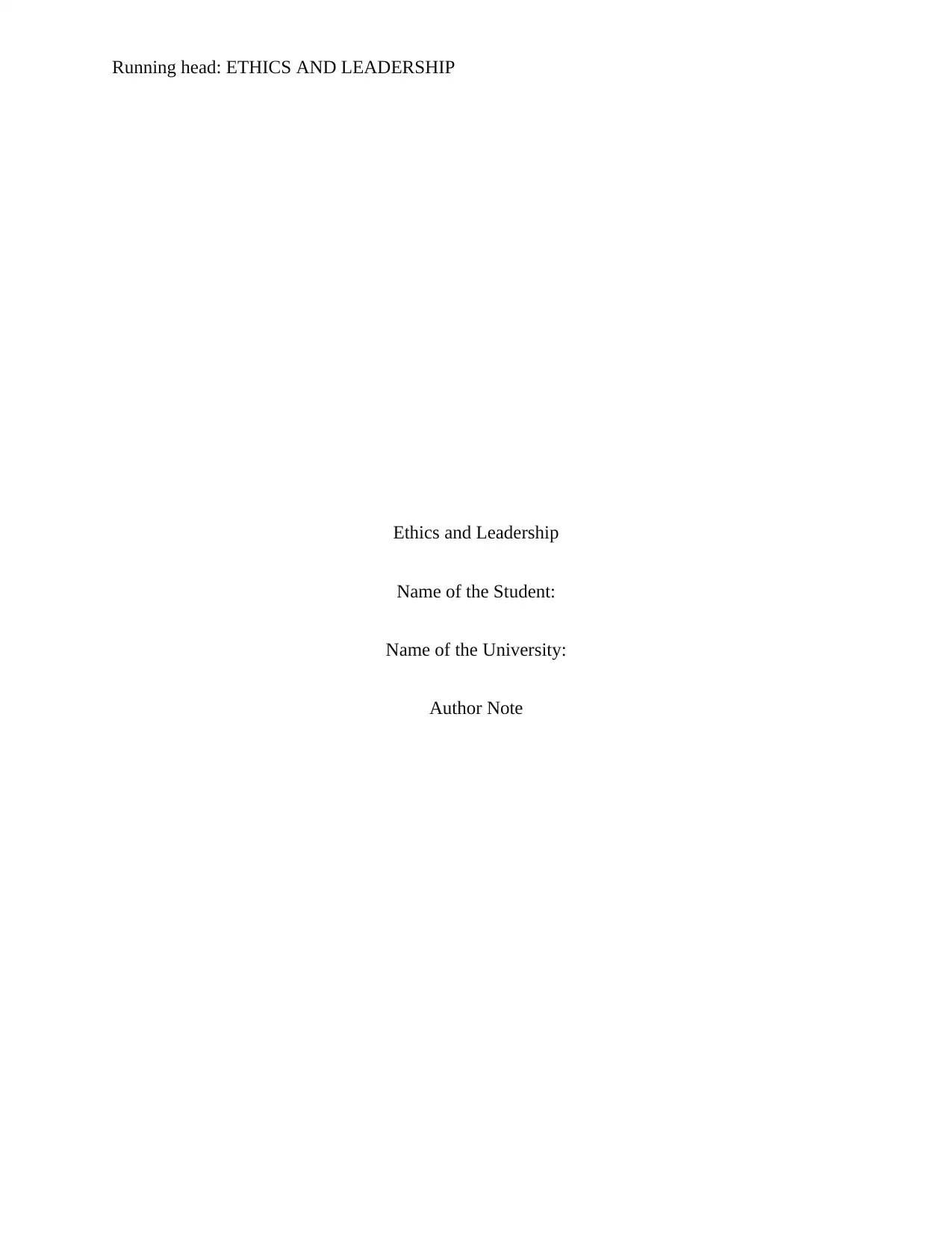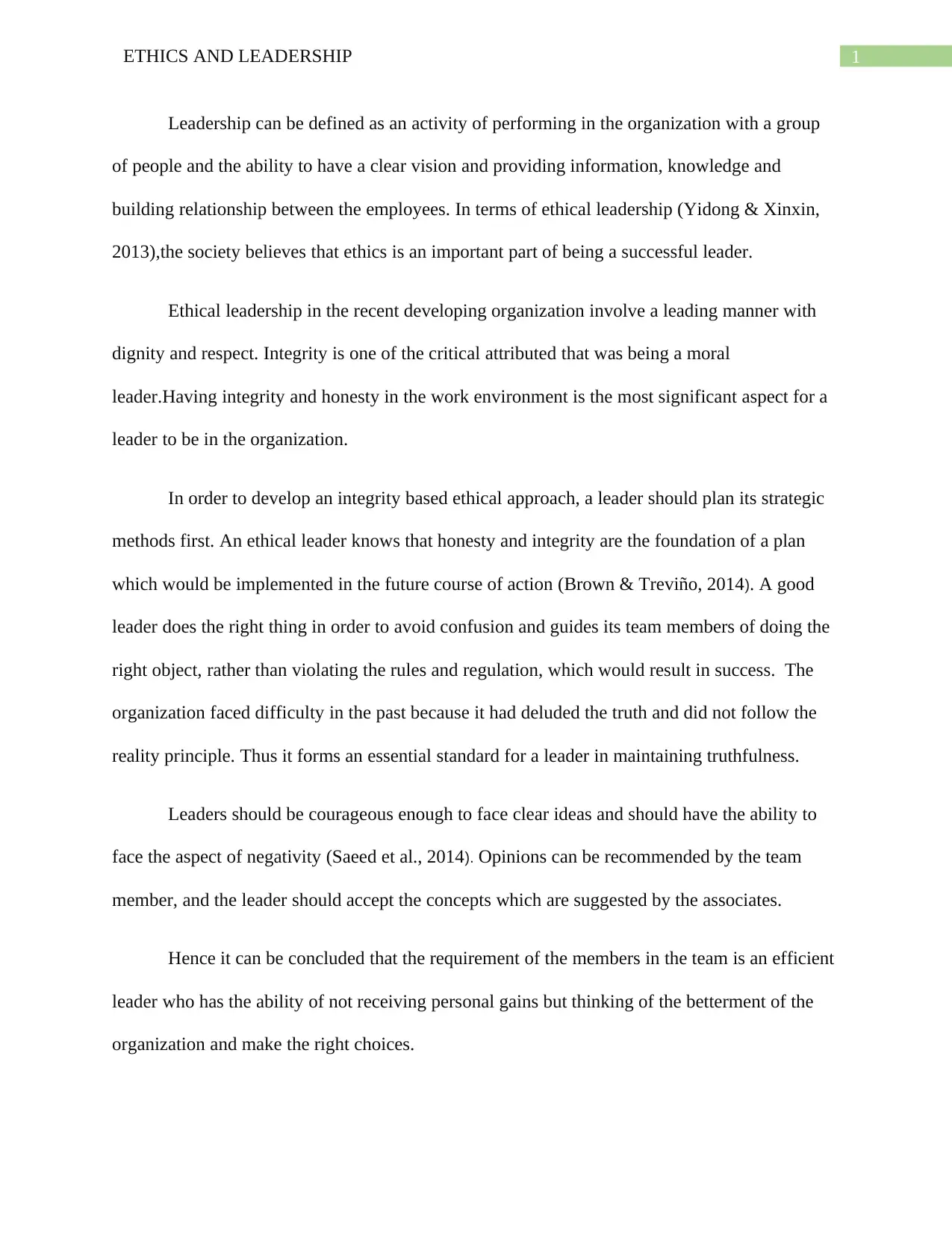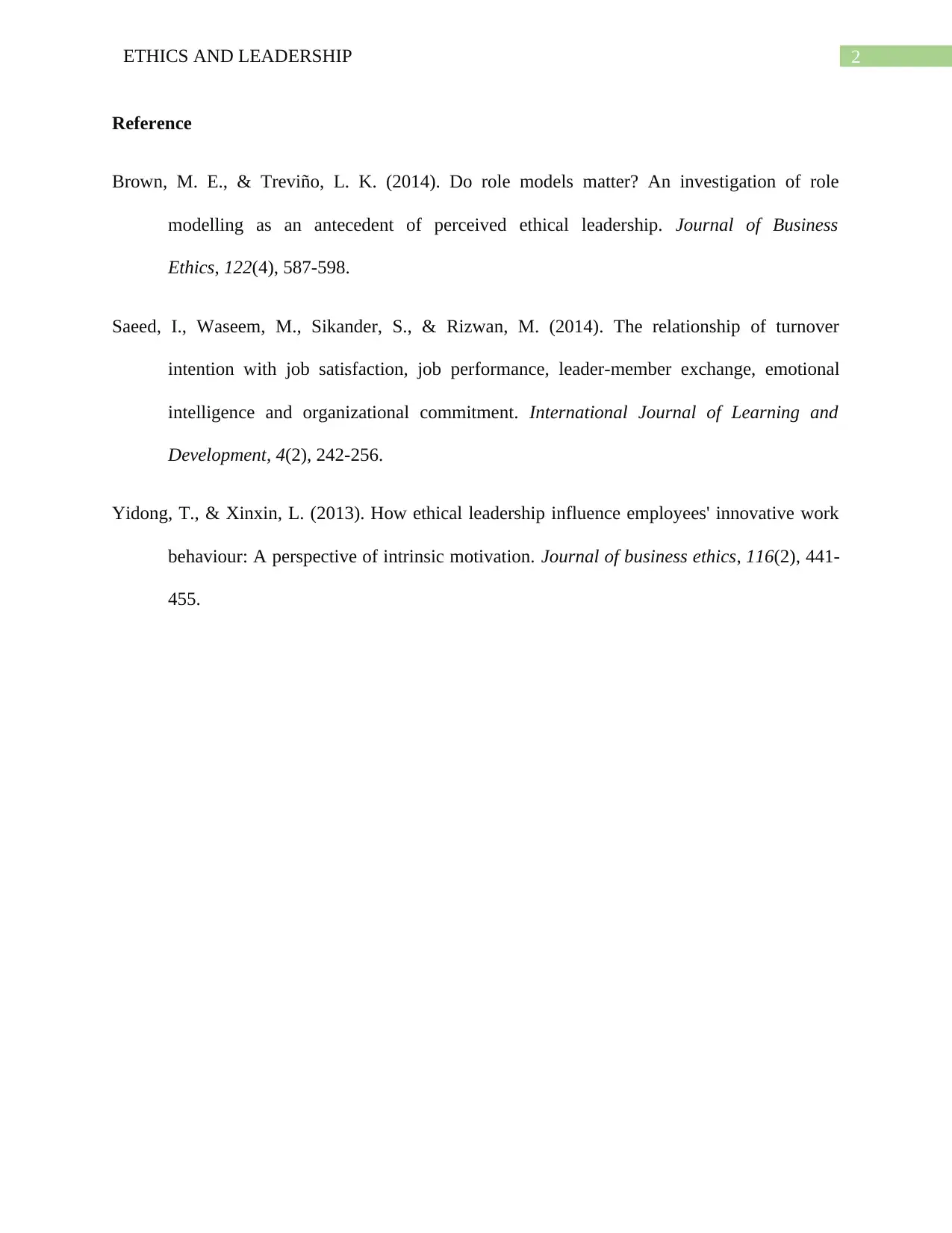Leadership's Role in Developing Ethical Organizations: Case Study
VerifiedAdded on 2022/12/02
|3
|498
|34
Report
AI Summary
This report examines the crucial role of leadership in fostering ethical organizations, focusing on an integrity-based ethics approach to management. The assignment analyzes a case study to illustrate how leaders can develop ethical frameworks and practices within an organization. The paper emphasizes the importance of integrity, honesty, and a strong moral compass in leadership, referencing ethical leadership theories and real-world examples. The analysis includes strategies for leaders to cultivate ethical behavior, such as setting clear ethical standards, promoting transparency, and encouraging open communication. The report also highlights the consequences of unethical behavior and the benefits of a strong ethical foundation for organizational success. The paper incorporates APA style citations, including references to relevant academic literature such as the work of Brown & Treviño and Yidong & Xinxin, to support its arguments and recommendations.
1 out of 3










![[object Object]](/_next/static/media/star-bottom.7253800d.svg)